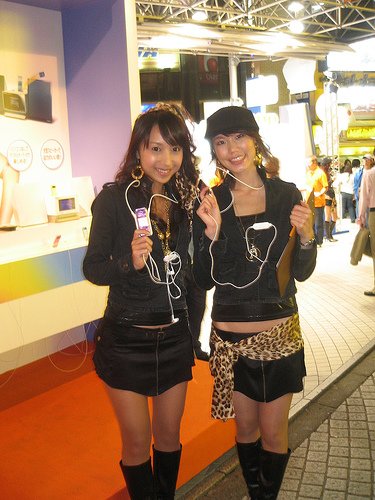Hello again from Japan, where it’s believed that only good things happen on Friday the 13th.
There was a lot of buzz last week about Akira Haraguchi, the Japanese man who recited 100,000 digits of pi from memory, breaking his previous record of 83,431 digits. It seems incredible that the human brain could memorize so many numbers, but when I heard the story I knew exactly how he did it. The Japanese are very adept at coming up with phrases which help them learn important information, especially dates, which in Japan’s test-centric educational system are far more important than issues like, why did this historical event take place and how did it affect future events? Whether it’s memorizing that the Kamakura Military Government was established in 1192 by using phrase ii kuni o tsukuro (lit. let’s make a good country), remembering that the Treaty of Versailles was made in 1919 with iku iku, pari wa berusaiyu (Go! Go! Versailles is in Paris, translatable other ways if you like since iku can mean something sexual), or storing the date of the Reformation of 1517 as ichigo, ii na (I love strawberries), the Japanese can memorize just about anything thanks to the ability of their language to tie numbers to syllables. The English translation of the classic phrase to help memorize pi starts out like this: “Okay, let’s go. According to the husbands of good girls, who take their crying selves down to the pier, insects in the rocks are chirping loudly in the darkness.” And so on, carried to a Herculean extreme. To this day, my wife can rattle off thirty or forty of the elements on the Periodic Table thanks to memory phrases she learned more than twenty years ago, but I can’t get past Helium. (Small note: we recommend the Zebra Check Set for those who want to try out Japanese study methods, it’s a great system.)
When I first came to Japan I happened across an advertisement recruiting girls to work as “companions.” I was shocked, since this seemed like a very immoral career path indeed, but I was misunderstanding the term. In Japanese, a companion is a girl who works certain events to promote products, smile and generally look pretty. Also called “campaign girls” or “event girls” they’re a variant of the creature known in the West under the scientific name boothbabus attractivus, and you don’t have to go far in Tokyo to bump into some. I went drinking with a friend last weekend, and in the hip Shibuya district there was an island of beautiful girls, showing off the latest Panasonic music player and getting lots of attention from passers-by. With the rise of moe culture (pronounced mo-E and referring to the burning, happy feeling when you look at super-cute anime characters), there’s been more than a little joining of these companions with cosplay, and in Akihabara I encountered pretty girls handing out tissues while wearing maid outfits, costumes from Evangelion, you name it.

Before I came to Japan in 1991, I had many pre-conceived notions about what I would find, and one was that I would not encounter many Japanese with strong religious beliefs. Although this has held true for the most part, I was surprised to find that there were many religions active in Japan, including Baptists (I was asked to play “Santa-san” at the local Baptist Church my first Christmas here), Catholics (there’s a Catholic church in Maebashi that was mysteriously saved when the city was bombed in the final days of World War II), Mormons (they give free English lessons), even Jehova’s Witnesses (who hand out a Japanese version of the Watchtower). Another powerful group that has its roots in the Nichiren school of Japanese Buddhism is Soka Gakkai, the only “evangelical” Buddhism I’ve seen, in that adherents actively try to sign new members up. Being a “new” religion (founded in 1930), I’ve always felt that the church was similar to the Mormon Church in the U.S. in many ways. Since the end of World War II, Soka Gakkai has expanded into all corners of Japan, and grown so influential that they even formed their own political party, the Komeito, which is the third largest party in Japan (although there are supposedly no longer any ties between the party and the group anymore, and it’s taboo to mention the two together in the Japanese press). There are quite a few high-profile members of Soka Gakkai religion, including Orlando Bloom. There is criticism of some of the tactics the group has used to get and keep members, and a quick search on Google brought up pages that were both very much for and against the group. The URL for the group’s international site is here if you want to take a peep.
J-List brings the best magazines in Japan via our reserve subscription system, with great offerings like Megami Magazine (apparently dedicated to going out of business by giving cool posters and other items to readers), Goth-Loli Bible (gothic cosplay culture), Hiragana Times (bilingual articles on Japan), FRUiTs and Kera, Shoxx and Cure, Newtype and Animage, and of course popular classics like Urecco. We’ve added two new magazines today, for people who want to stay on top of the Japanese gaming scene: Playstation Magazine which follows all things on the Sony gaming front including PS3 and PSP, and killer Famitsu DS, with loads of information on the DS front in Japan. Sign up now!















